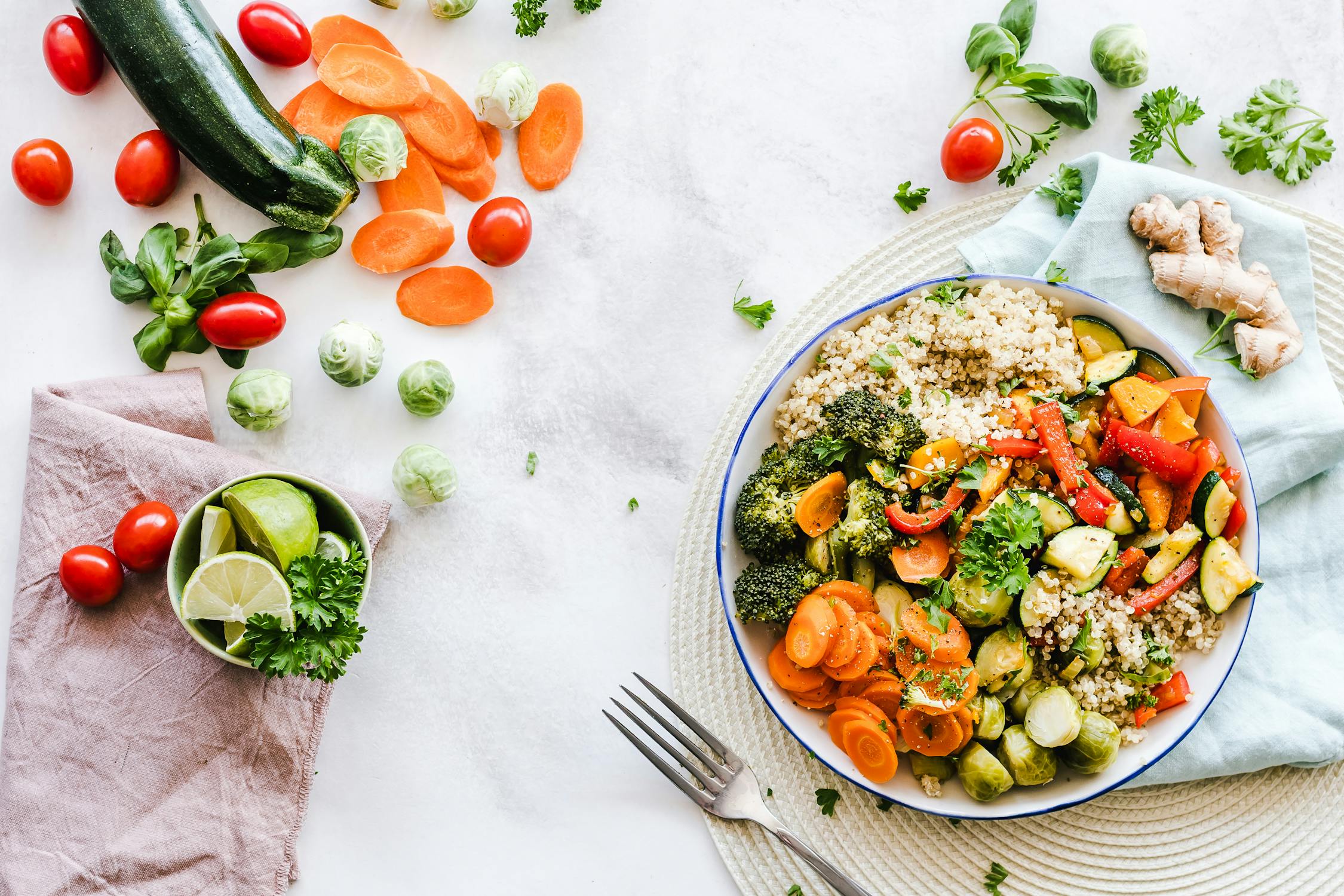We’ve all experienced that "gut feeling," whether it's nervous butterflies before a presentation or a deep sense of satisfaction after a good meal. What used to be dismissed as intuition is now the subject of intense scientific research: the powerful, bidirectional link between your digestive system and your brain. This relationship, known as the **gut-brain axis**, is a cornerstone of modern **wellness guides** and **preventive care insights**.
At **PONSS Health**, we believe true **everyday living** health begins from within. Understanding how the trillions of microbes in your gut—your **microbiome**—influence everything from your anxiety levels to your immune function is the key to unlocking superior well-being. This article will explain the science behind the gut-brain axis and provide practical **health tips** on how to nourish your microbiome for better mental and physical health.
The Science of the Second Brain
Your gut, or specifically the enteric nervous system (ENS), is often called the "second brain." It’s lined with hundreds of millions of nerve cells and is in constant communication with your actual brain (the central nervous system) via the **Vagus Nerve**—a critical neural superhighway. This axis regulates much more than just digestion:
- **Neurotransmitter Production:** The gut is responsible for producing up to 90% of the body's **serotonin**, a neurotransmitter essential for regulating mood, appetite, and sleep. When the balance of bacteria is off (known as *dysbiosis*), this production can be disrupted, impacting mental health.
- **Inflammation Control:** The gut microbiome helps control inflammation throughout the body. Chronic, low-grade inflammation is linked to numerous diseases, including heart conditions and mood disorders like depression and anxiety.
- **Stress Response:** The gut-brain axis significantly influences the HPA (Hypothalamic-Pituitary-Adrenal) axis, which manages your body's stress response. A healthy gut is better equipped to handle and mitigate the effects of chronic stress.
This intricate relationship highlights why diet is not just about calories and weight; it's a vital component of **preventive care** for both your physical and psychological health. For a comprehensive overview of how gut microbiota affects mental health, authoritative research from the National Institutes of Health (NIH) is highly recommended.

*Image Prompt: Diagram or conceptual graphic of the gut-brain connection.*
Fueling Your Microbes: Probiotics vs. Prebiotics
To support a thriving microbiome, you need two types of dietary allies: **Probiotics** and **Prebiotics**. While the terms sound similar, they perform distinct roles, and understanding the difference is a crucial **health tip**.
Probiotics vs. Prebiotics: A Simple Comparison
| Category | Probiotics (The Good Guys) | Prebiotics (The Food) |
|---|---|---|
| **What They Are** | Live microorganisms (bacteria or yeasts) that confer a health benefit when consumed. | Non-digestible fibers/compounds that feed the beneficial bacteria already in your gut. |
| **Food Sources** | Yogurt (with live cultures), Kefir, Sauerkraut (unpasteurized), Kimchi, Kombucha. | Garlic, Onions, Leeks, Asparagus, Bananas (slightly green), Oats, Apples. |
| **Analogy** | Adding new "workers" to the factory. | Providing the "fuel" for the existing workers to thrive. |
**Recommendation:** Aim for a synergy—consume a variety of prebiotic-rich whole foods daily, and incorporate probiotic-rich fermented foods a few times a week to keep your gut ecosystem balanced.
For further clarity on the role of both in digestive health, the Mayo Clinic provides an excellent FAQ on probiotics and prebiotics.
The Diet-Mood Connection: Wellness Foods to Prioritize
A gut-friendly diet naturally aligns with general **wellness guides** and promotes better mood. The goal is to maximize fiber diversity while minimizing foods that promote inflammation.
To support both your gut and your mind, integrate these food groups into your **everyday living**:
- **Omega-3 Fatty Acids:** Found in fatty fish (salmon, mackerel), walnuts, and flaxseeds. These fats are vital building blocks for brain cells and have powerful anti-inflammatory effects that benefit the gut lining.
- **Fiber-Rich Fruits and Vegetables:** Diversity is key. Eating 30 different plant foods per week is a fun challenge that introduces diverse fibers (prebiotics) to nourish different beneficial bacterial strains.
- **Fermented Foods:** Beyond the standard yogurt, explore products like tempeh, miso, or quality artisan pickles. These provide a diverse array of probiotic cultures.
- **Polyphenol-Rich Foods:** These plant compounds act as antioxidants and fuel for your gut bacteria. Find them in dark chocolate (moderation!), berries, green tea, and red wine (very moderate!).

*Image Prompt: Colorful, balanced meal with fish, vegetables, and whole grains.*
Lifestyle Factors That Heal or Harm the Gut
Your diet is only one piece of the puzzle. Several **everyday living** habits can either support or sabotage your gut health, making them essential areas for **preventive care** focus:
- **Stress Management:** Chronic stress floods the body with cortisol, which can directly alter the gut microbiome and increase intestinal permeability (leaky gut). Practices like mindfulness, meditation, and deep breathing are non-negotiable gut health tools.
- **Physical Activity:** Regular, moderate exercise promotes a more diverse and healthy gut flora. It also helps manage stress, providing a double benefit.
- **Sleep Quality:** The gut and sleep are intrinsically linked. Poor sleep can negatively impact the microbiome, and an imbalanced microbiome can disrupt sleep-regulating hormones. Prioritizing 7-9 hours of quality sleep is a critical **health tip**.
- **Antibiotic Awareness:** Antibiotics are essential when needed, but they are indiscriminate, killing good bacteria along with the bad. Always follow up a course of antibiotics with concentrated probiotic intake to help repopulate the gut.

*Image Prompt: Person meditating or practicing yoga for stress relief.*
Conclusion: A Holistic Approach to Wellness
The gut-brain axis teaches us a profound lesson in **holistic health**: you cannot separate your physical body from your mental state. By tending to the health of your gut microbiome through mindful eating (rich in prebiotics and probiotics), prioritizing stress reduction, and maintaining consistent healthy habits, you are engaging in the most effective form of **preventive care**.
Embrace the philosophy that your gut is your second brain. Nourish it with care, and the rewards will ripple outward into every facet of your **everyday living**, leading to improved mood, stronger immunity, and a foundation of lasting wellness.
No comments:
Post a Comment